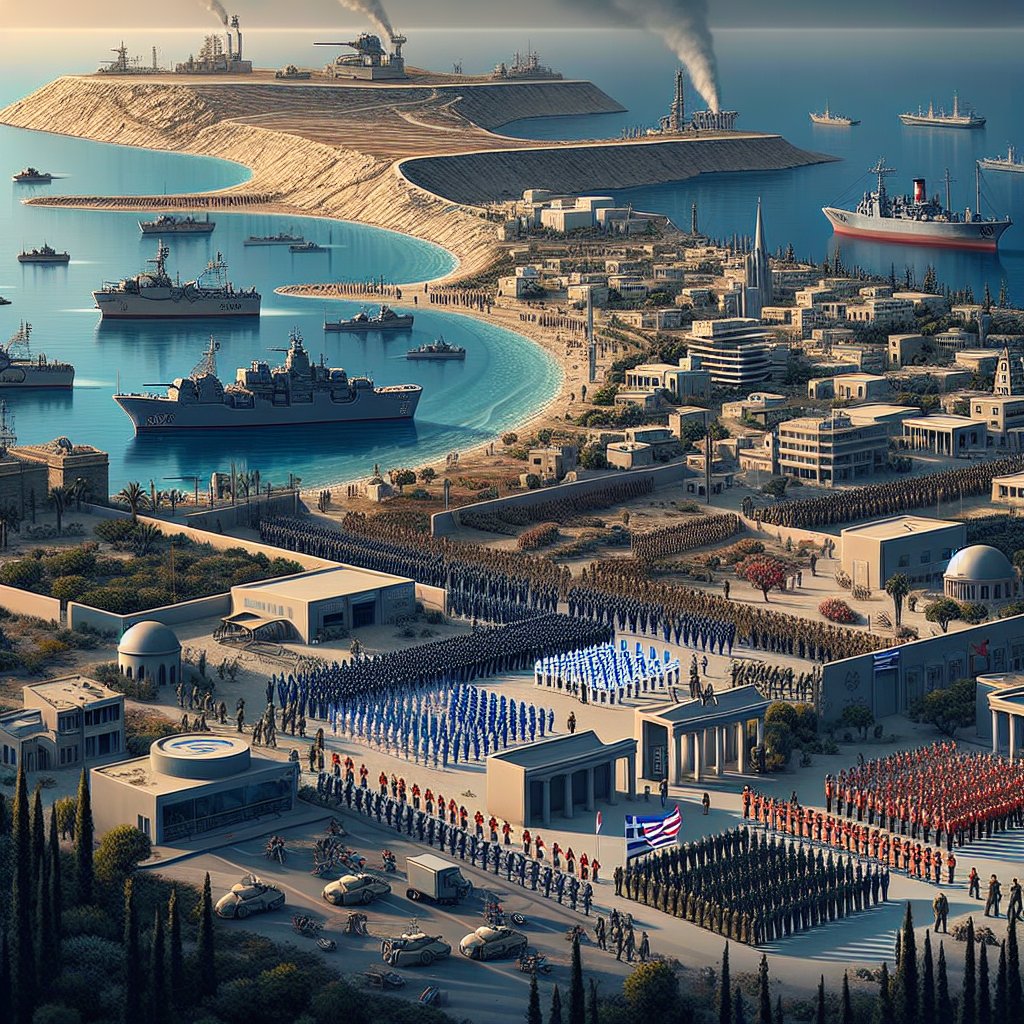Image created by AI
Turkey's Erdogan Announces Readiness to Establish Naval Base in Cyprus Amid Tensions
The Mediterranean island of Cyprus, which has been a focal point of regional tensions for decades, is once again under the spotlight as Turkish President Recep Tayyip Erdogan announced Turkey's readiness to build a naval base in the northern part of the island 'if necessary'. This bold statement, according to Turkey’s Anadolu news agency, came just after Erdogan's visit to Northern Cyprus on Saturday, commemorating 50 years since Turkey's invasion that led to the island's division.
The historical underpinnings of this announcement trace back to 1974, when Turkey, responding to a coup aimed at Cyprus's annexation by Greece, launched an invasion that resulted in the occupation of over a third of the island and displacement of thousands. This action led to the factious establishment of the Turkish Republic of Northern Cyprus in 1983, exclusively recognized by Turkey.
In his statements, Erdogan leveraged accusations toward Greece, claiming it harbors intentions to build a Greek naval base in Cyprus, amidst a situation where official talks on reunification under a federal model have been stalled since the collapse of the last UN-backed negotiations in 2017. Erdogan's dismissive remarks towards a new federal negotiation process reflected his view that without equal footing for both parties, discussions would be fruitless.
Erdogan's visit included a military parade in north Nicosia, which served as a demonstration of strength and sparked contrasting scenes of commemoration and mourning on the island. The Turkish leader highlighted ongoing projects, such as the construction of a presidential building and parliament in Northern Cyprus, drawing a sharp contrast to Greek Cypriot endeavors and further solidifying the divide.
On the other side of the UN-patrolled buffer zone, Cypriot President Nikos Christodoulides reiterated the stance of the Republic of Cyprus, stating that reunification remained the only viable path forward. This claim was made despite the rejection of a UN plan by Greek Cypriots when Cyprus joined the European Union in 2004.
President Erdogan’s remarks have ignited fresh concerns over the escalating tensions in the Eastern Mediterranean region, where energy exploration rights and maritime borders have already created strife amongst neighboring countries. The announcement of potential naval expansion projects by Turkey may thus lead to increased regional militarization and complicate the fragile balance maintained by international diplomatic efforts.
As such, the prospect of Turkey establishing a naval base in Northern Cyprus serves not only as a significant strategic move on Erdogan’s part but also a telling sign of the enduring political standoff that characterizes relations between Greek and Turkish Cypriots, as between Greece and Turkey. With no immediate solution in sight, the Mediterranean region remains tethered to historical conflicts, with each new development casting long shadows over future peace and stability.
#GOOGLE_AD










